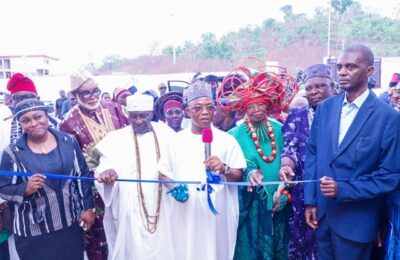“Good evening dear brother… It’s my humble opinion that it’s because of our politics of self-isolation that the once powerful Igala kingdom has become relics of her ancient greatness.” — Engr. Emmanuel Anejodo
Your words, dear Engr. Anejodo, resound the lamentation of many truth-seeking Igalas who still believe in the resurrection of our ancestral dignity. I receive your commentary with deep reverence because it speaks from a place of sincerity and patriotic pain. Indeed, your observation mirrors the unhealed wound I tried to expose in “The Unanswered National Questions.” It is true that greed, selfishness, and self-exclusion have become the unholy trinity eating deep into the soul of the Igala nation. Yet, beneath this moral decay lies another tragedy — the deliberate systemic sidelining of a people whose historical relevance predates the birth of Nigeria itself.
You are right, my brother: the Igala nation has all it takes to lead — demographic strength, intellectual capital, geographical advantage, and natural resources. But power, as history teaches, does not stay where it is deserved; it stays where it is demanded and defended. Our fathers once commanded respect across the confluence belt because they governed with moral clarity and collective purpose. Today, our politics has been reduced to a personal venture — a bazaar of divided interests where communal destiny is auctioned for crumbs. The Igala elite class must understand that the politics of isolation you mentioned is not just an error; it is a curse of disunity that has turned our strength into weakness.
Regarding your point on the Ibaji oil, your submission is both factual and cautious. Yes, Orient Petroleum (now Orient Oil) has done skeletal activities, and commercial exploration is yet to reach its full rhythm. However, this should not excuse the administrative injustice that relocated the control of the oil bloc from Ibaji to Okene. Whether exploratory or productive, the resource belongs to Ibaji by geography, geology, and divine ordinance. It is a moral absurdity that while Ibaji bears the environmental risk and ecological burden, another district dictates the administrative direction. This is not merely bureaucratic imbalance — it is an insult to natural justice.
You also raised a key concern: the self-inflicted dimension of Igala’s marginalization. I agree, but I must add that external manipulation has deepened our internal weakness. Successive governments in Kogi have perfected the art of dividing the Igala bloc through political patronage and token appointments. A people who cannot unite behind a shared vision will forever be ruled by those who exploit their division. The colonial playbook is alive in our politics today — divide, flatter, and rule. The political Merchants or Saboteurs in Igala nation and their ilk understand their scripts too well.
But the larger tragedy lies in what I call “the death of strategic leadership” in Igala land. We have loud voices but few visionaries; many politicians but few genuine statesmen. A generation that cannot look beyond the next election cannot build a future beyond its own lifetime. The likes of Dr. Stephen Achema, and Prince Abubakar Audu ruled with a sense of destiny. They saw Igala not as a mere tribe but as a covenant people. That spiritual consciousness has disappeared. Until we return to leadership guided by moral mandate rather than political appetite, Ibaji’s oil will remain a metaphor for our unrealized greatness.
You also touched on the rising call for an “Igala-only state.” While the agitation springs from frustration, it must be handled with wisdom. Secession or self-determination should not be the first option; rather, equitable restructuring within the Nigerian federation should be our immediate demand. The Igala nation deserves institutional representation, infrastructural justice, and administrative autonomy within a united Nigeria. Our demand should not divide Kogi, but redefine it.
Finally, brother, I share your view that the Igala question is not beyond redemption. Every kingdom that fell through disunity can rise again through repentance and renewal. The path to restoration begins when our intellectuals, clergy, politicians, and youth agree to rebuild on truth and courage. As Scripture says, “If the foundations be destroyed, what can the righteous do?” (Psalm 11:3). The answer is simple — rebuild.
We must rebuild the moral foundation of our leadership, reclaim the narrative of Ibaji’s oil ownership, and reawaken the collective Igala consciousness that once guided our ancestors. This is not a battle of hate but of heritage. Nigeria cannot continue to feed off Igala resources while starving Igala development. Justice delayed is not just justice denied — it is destiny postponed.
Let this conversation not end in lamentation, but in action. For as T.B. Joshua once said, “The secret of your future is hidden in your daily routine.” If we make courage, unity, and integrity our daily routine, then history will not remember us as the generation that lost Igala power — but as the one that revived it.
– Inah Boniface Ocholi writes from Ayah – Igalamela/Odolu LGA, Kogi state.
08152094428 (SMS Only)




